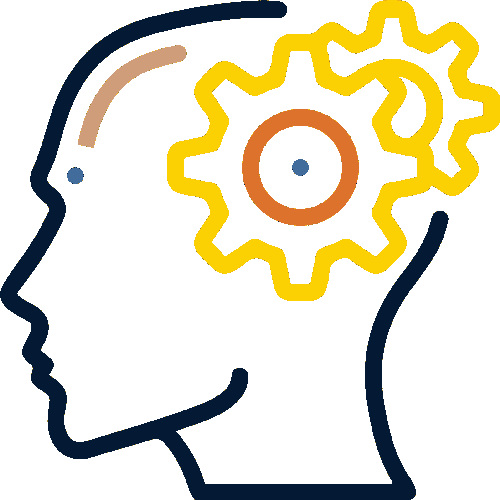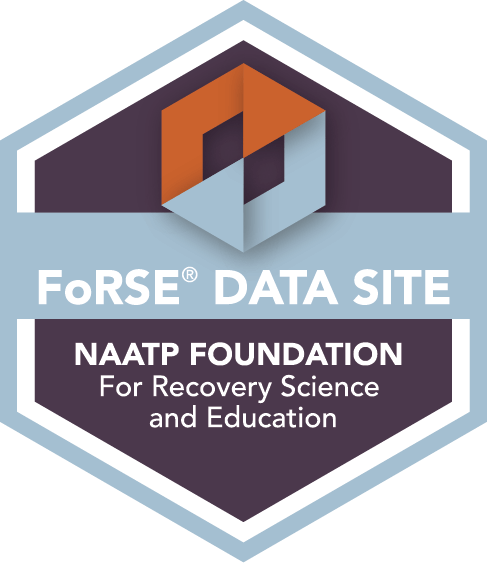If you are currently battling alcohol or drug dependency, you should know that Northern Illinois Recovery Center offers various substance abuse treatment programs and therapies, including cognitive-behavioral therapy (CBT). Our addiction treatment targets your particular needs and also addresses the factors that have led to your substance use disorder (SUD).
With CBT, you can have the skills and strength you need to achieve lasting sobriety and overcome your addiction. The cognitive-behavioral therapists will teach the clients new skills and attitudes that patients can use long-term, which will help their substance use disorders. Cognitive-behavioral therapy assists individuals with strategies and coping skills.

The 3 Goals of CBT
- Change patterns of negative thinking: CBT restrains negative thoughts by revealing the motivations behind unhealthy behavior. The CBT therapist assists the patient in actively reteaching their brain how to handle and think about emotions. Negative thought patterns can encourage drug use and addiction treatment.
- Change unhelpful patterns of behavior: CBT discourages negative actions and reinforces positive actions. Addictive behaviors stem from substance abuse or drug abuse. Negative thought patterns play a huge role in drug addiction and substance use.
- Teach coping skills: CBT encourages healthy coping strategies as a substitute for harmful behaviors. Instead of rashly and swiftly turning to alcohol, drugs, or any other addictive behavior, have a coping mechanism. When individuals can make wise choices, it helps with their addiction recovery.
An imbalance in one area can create another because of the relationship between your thoughts, actions, and mental health. We can discover this imbalance with CBT for drug abuse. Cognitive-behavioral therapy can help an individual overcome substance misuse and treat addiction.
CBT for Dual Diagnosis
Primarily, CBT focuses on identifying and naming the negative ideas that an individual has about themselves. This often revolves around a negative self-image, but it can also be an erroneous belief in inadequacy or inability to achieve a goal. These negative conceptions of self impact how people act. They can also feed anxiety disorders and depressive disorders, which put a person at risk of developing a SUD to cope. Once this occurs, addictive behaviors are developed, and a person undergoes drug dependence.
Once you recognize these connections, you can begin to learn new skills to cope and manage your thoughts and emotions during therapy and afterward. CBT doesn’t just identify negative or erroneous thinking; it actively works to help individuals change their behaviors to be more positive. Building these foundations will help people as they leave treatment at our treatment centers and begin their lives of sobriety.
Likewise, if you take drugs or drink alcohol in excess, it will affect your thoughts, emotions, and actions. The more drugs you take, the more your thoughts and actions will be connected to your addiction. Eventually, your mental state will fuel your addiction, and your addiction will drive you more deeply into a severe mental condition. That symbiotic relationship between the drug or alcohol and your mental state is what causes dependency. Cognitive-behavioral therapy work can expose these habits within a person and assist them in changing for the better.

The Benefits of CBT
The foundation of cognitive-behavioral therapy rests on a few main principles. The main one is that people often develop faulty and negative thinking about themselves and the world. As these negative thoughts take root over time, they become a part of the person’s emotional state. Consequently, negative thoughts influence how a person feels and responds to the world and others and lead to harmful behavior.
Through a cognitive-behavioral therapy program, the therapist works to help the person identify the negative thinking, and then they expose it to the person. During CBT, the therapist challenges your false thoughts and helps replace them with more accurate, positive ones.
Sometimes you may not know why you act or feel the way you do. Have you ever got upset, stressed, or even angry and then later wondered why you felt the way you did? It’s easy to act in ways we regret when we feel stressed or angry, too. The fact is that something from the past could be triggering our emotions, and thereby our actions follow.
If you find you’re always responding and reacting to situations without realizing why, then a CBT program will benefit you by delving into the core issue of your problem. Instead of reacting all the time to things without understanding why, you will begin to understand what drives those thoughts. As you gain understanding, you will also get better control over these actions.
When you do the work of cognitive-behavioral therapy or CBT, you can get to the core of your addiction issues. You’ll understand what drove you to use drugs in the first place. Often, individuals abuse drugs or alcohol due to some underlying mental health issues, such as anxiety or depression, or because of stressors at work, school, or within their family.
CBT helps you think rationally about situations and problems when they appear instead of immediately thinking about a worst-case scenario. This not only helps avoid negative emotions but also helps you solve the problem more efficiently and effectively.
Rational thinking also leads to more controlled thinking. You have a better grasp of your thoughts and emotions when you face negative issues or situations. You can use your new coping mechanisms to work past the problem rather than turning to substance use to cope with it. As a result of having a better attitude and thought processes, you will think about yourself in a positive way and end the negative patterns in your thinking. By incorporating these operant learning strategies and mental health services, positive change will form for the better.
CBT has an emphasis on relapse prevention. Individuals who misuse alcohol and other drugs experience relapse incidents often. CBT therapists teach clients new attitudes and skills to depend on in the long term. This improves the person’s feeling of self-reliance, but it also leads to reducing life pressures that increase the risk of relapse. This is why we use CBT in our aftercare program.
Cognitive Behavioral Therapy for Alcoholism

Cognitive Behavioral Therapy for Drug Abuse
A cognitive-behavioral therapy program treats addiction by reducing the reinforcing effects of substances on behavior. It does this by building positive mental connections with abstinence and teaching coping skills.
CBT is also effective for other mental health conditions, which are often an underlying cause of substance abuse. People commonly try to self-soothe an undiagnosed mental illness by using substances. These disorders are frequently the deep-seated cause of a substance use disorder:
- Bipolar disorder
- Depression and addiction
- Post-traumatic stress disorder (PTSD)
- Anxiety disorders
- Physical illnesses like chronic pain
Cognitive Behavioral Therapy Services We Provide
To help you overcome some of your deepest struggles, we provide a comprehensive cognitive-behavioral therapy service that includes:
- Mind pattern restructuring
- Positive activity scheduling
- Fear exposure therapy
- Goal setting and achievement
- Mindfulness meditation
- Skills training and problem-solving
Additionally, a cognitive behavioral therapy program is highly effective at treating different psychological problems and disorders. Numerous CBT exercises, such as those listed above, are designed to help you overcome some of your most significant challenges. CBT is one form of therapy we offer across all our treatment programs, which include:
- Drug and alcohol detox
- Residential treatment
- Partial hospitalization program (PHP)
- Intensive outpatient program (IOP)
- Telehealth IOP
- Outpatient treatment
- Structured sober living
- Aftercare
Whether you or a loved one is in our men’s, women’s, or young adult rehab, CBT can be a great help in recovering from a SUD.
Cognitive Behavioral Therapy FAQs

People who receive cognitive-behavioral therapy experience brain activity changes that may improve brain functioning. Behavioral treatments for an alcohol use disorder (AUD), such as CBT, affect brain function in ways that help people maintain their recovery. It aims at improving coping skills as well as understanding the factors and triggers that result in continued alcohol use.
At Northern Illinois Recovery Center, we utilize CBT to treat a wide range of mental disorders, including:
- Depression and anxiety
- PTSD
- Sleeping and eating disorders
- Obsessive-compulsive disorder (OCD)
- Drug or alcohol abuse
- Bipolar disorder
Likewise, an individualized treatment plan is also effective for patients who suffer from phobias, schizophrenia, and sexual disorders.
Yes, many insurance providers, including Medicare and Medicaid, cover CBT as an outpatient medical service. Some plans also cover CBT as part of rehabilitation services. Your coverage often depends on your specific provider and plan. Our admissions team is happy to help answer any further questions about insurance coverage.
Each CBT therapy session varies depending on your therapist and specific goals for therapy. Since CBT is a form of talk therapy, you can expect a conversation with your therapist centered around specific issues you may have.CBT therapists use a technique called Socratic questioning to help patients arrive at their conclusions. For addiction treatment, this often includes discussing your substance abuse habits and investigating what may have caused them.
Socratic questioning in Cognitive Behavioral Therapy (CBT) is a guided dialogue technique where therapists ask open-ended, thought-provoking questions to help clients examine and challenge their irrational or unhelpful beliefs. Instead of directly telling clients their thoughts are distorted, the therapist encourages self-reflection by prompting them to explore evidence, consider alternative perspectives, and assess the validity of their assumptions. This method fosters deeper insight, promotes cognitive restructuring, and helps clients develop more balanced, realistic ways of thinking. Ultimately, Socratic questioning empowers individuals to arrive at their conclusions, strengthening their ability to modify maladaptive thought patterns independently.
Typically, individual sessions last for about 50 to 60 minutes. Patients often attend several sessions over the course of 12 to 20 weeks. However, the number of sessions an individual attends can depend on their insurance coverage, personal preference, and treatment needs. Often, individuals continue CBT therapy throughout their recovery to ensure they practice the cognitive skills this therapy provides.
Contact Northern Illinois Recovery Center
Contact us today to schedule a consultation with one of our clinicians and to find out more about the treatment programs we offer at Northern Illinois Recovery Center. We can answer your questions, go over your treatment options, and tell you more about the types of addiction counseling that we offer.
We are here to help you get back on the road to recovery, and we understand that it is a road that demands expert help and guidance along the way. Our addiction therapy services are extensive, offering the best chance for healing. We’ll help you get the best opportunity for a full and lasting recovery.






